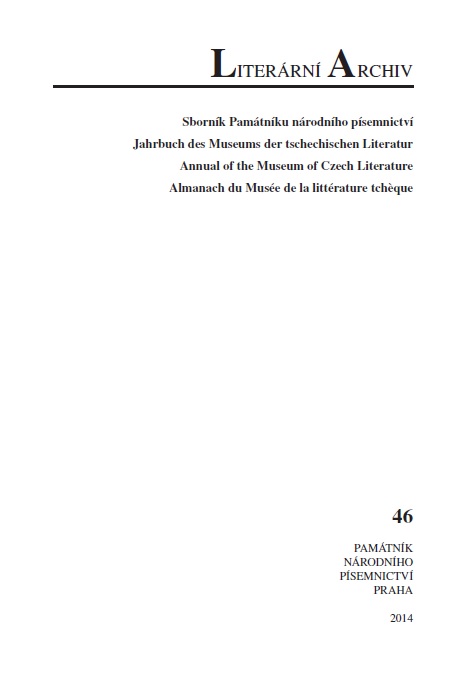Inspirace východní filozofií v tvorbě Bohumila Hrabala
The Inspiration of Eastern Philosophy in the Works of Bohumil Hrabal
Author(s): Joanna Królak, Piotr ŚlusarczykSubject(s): Studies of Literature
Published by: Památník národního písemnictví
Keywords: buddhism; Schopenhauerism; Modernism; Bohumil Hrabal; T. S. Eliot; Prokopnutý buben (A drum kicked in); Krásná Poldi (Lovely Poldi); Bambini di Praga 1947; Zdivočelá kráva (The feral cow);
Summary/Abstract: The article is concerned with the identification and assessment of elements of Eastern philosophy in the works of Bohumil Hrabal (1914–1997). The works Prokopnutý buben (A drum kicked in), Krásná Poldi (Lovely Poldi), Bambini di Praga 1947, Zdivočelá kráva (The feral cow), Ostře sledované vlaky (CloselyWatched Trains), Kouzelná flétna (The Magic Flute), Autíčko (Toy car), and Inaugurace a vnitřní monolog (Inauguration and interior monologue) present ideas that have their source in Buddhist philosophy, for example, the ubiquity of suffering, the illusory nature of the world, and the essential unity of all phenomena. Buddhist philosophy does not have an autonomous status in Hrabal’s work; rather, it is mediated by the works of Schopenhauer and, to a lesser degree, by the inspiration of literature, for example,T. S. Eliot’s TheWaste Land (1922). In this way, Hrabal enters the modernist stream of the reception of Buddhism, which first appeared in European thought in the nineteenth century. Buddhist motives form part of Hrabal’s artistic vision. In many places, they resist canonical interpretation.
Journal: Literární archiv
- Issue Year: 2014
- Issue No: 46
- Page Range: 53-58
- Page Count: 6
- Language: Czech

